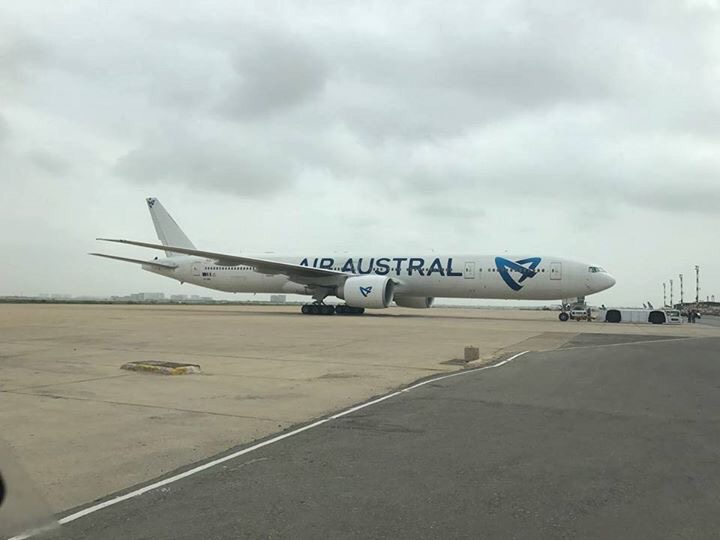Pakistan International Airlines (PIA) received two new planes today that include a wide body Boeing 777-300ER from French carrier Air Austral on dry lease. While an Airbus A320 from Vietnamese low cost carrier Vietjet arrived at Jinnah International Airport, Karachi.
After cutting various flights, streamlining routes and messing up loyal passengers flights PIA finally got two planes today. It is important to mention the wide body arriving today was supposed to arrive last year. But after various botched tenders, leasing attempts and annoying several companies PIA did get the planes.
Boeing 777s are truly the backbone of PIA’s international flight operations. The Boeing 777 that was added today will be the 12th of Boeing 777 family member in PIA’s present fleet, whereas it is the 4th Boeing 777-300ER. It arrived this morning as delivery flight PK 8770 with registration AP-BMS from the little known French city of Tarbes. It was previously operated by Air Austral with French registration F-OYSD.
This aircraft was initially delivered to Air Austral on 29th April 2009 and is owned by Macquarie AirFinance. It remained with Air Austral for 8 years, where it also served for few months with Garuda Indonesia.
On the other hand the wet leased Vietjet Airbus A320 as VJ 9891 from Ho Chi Minh City, Vietnam. This plane was initially delivered to Wataniya Airways of Kuwait back in January 2009, registered as 9K-EEA. After serving it’s first lessor for 2.5 years, it joined Vietjet bearing registration VN-A666 in November 2011. Vietjet used this plane for a little more than 5 and a half years, and then decided to lease it out to PIA along with 3 more A320s that will be arriving in the next few days.
The aircraft MSN is 3739 and its age is 8 years 6 months. It has an all Economy layout of 180 seats.
Hopefully the addition of these 2 planes augurs well for PIA and it’s disrupted flight operation will be back to normal. We can not expect expansion in PIA’s route network with the addition of these 2 planes but hopefully it will bring back some stability in its operations.

